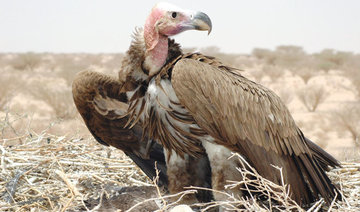JEDDAH: Crowded pet shops with barely enough room to walk. Kittens are separated from their mothers in bird cages. Litter boxes and food are crammed into small spaces. People can buy the animal they want and walk out, no questions asked.
In Saudi Arabia, pet shop owners do not need a special license to open and run such a business. The conditions in pet shops and the lack of accountability are two of the reasons that animal shelters in Jeddah are urging locals to adopt instead of buying the pets.
Nour Fitiany, 24, is a volunteer for the Jeddah dog shelter Open Paws. She told Arab News: “Pet shops and breeders don’t always treat animals kindly. Their main goal is financial so, for them, it is not an issue to over-breed an animal or to keep them caged for extended periods in poor health.”
Open Paws takes steps to ensure compatibility between the home environment and the pet. It checks that the house is appropriate for the particular dog breed and that each family member accepts having a pet in the house. Once the adoption process is concluded, the shelter follows up to ensure that the pet is being treated kindly and steps in whenever needed.
Michelle Lee is the owner of Gus’s Hope, a home for abandoned and stray cats.
She told Arab News: “While it's not costing you anything, you are also helping a homeless animal to find a place and have a home. I can never understand why people buy animals when there are animals that can already be found neutered, vaccinated, dewormed, and healthy. The adoption centers make sure that you will adopt the right animal.”
She said there were cases where some shops had sold animals that were not healthy and had diseases. “They do not care about anything other than profit,” she added.
The Ministry of Environment, Water, and Agriculture has worked with the GCC Animal Welfare Law, which is aimed at tackling animal cruelty.
The outlawed practices involve declawing, tail docking, ear cropping, vocal cord removal, dehorning, chemical castration, and the use of any chemicals that may promote growth.
Another aspect of pet-buying that leads to several problems is how people with a lack of information could end up with the wrong breed.
Buyers who have not done proper research tend to choose their pets based on how they look, rather than the characteristics of the breed.
“It is not a good idea to be just interested in the looks: A Chow Chow, for example, looks like a real-life teddy bear but is not made for Saudi weather and the heat causes them a lot of breathing problems. Most people who give up their pets say they didn’t realize that they had to provide that much time and energy for them,” said Fitiany.
She explained that another reason people ended up spending unnecessary money was that they were trying to find a certain type of breed and believed that they could not find it locally, or that the ones available locally were not “pure.”
However, it is the opposite case and the dogs given to shelters are, more often than not, pure.
What people need to consider before adopting an animal are the energy levels of the animal, which would require a more physically active owner, adaptability to the environment, health issues, financial requirements, and whether the owner has enough time, energy, and money to provide for them.
The owner of DJ Kennels, Mahmoud Azzam, told Arab News: “The real purity and uniqueness, in my opinion, lies in educating people and making a difference in society by spending money on raising awareness.”
Researching and looking for the right information with the will to learn can avoid cases of pet abandonment.
Azzam said this lack of information could result in neglect and abuse.
“When you don’t know what to do, or how to handle a certain type of breed, your pet can harm you because you treated them in a way that that particular breed should not be treated. On the other hand, you can also harm the pet and endanger their lives.”
There is a wealth of knowledge at everyone’s fingertips and, with the right tools, people can research beforehand to work out what is the perfect pet for them.
Azzam said that his go-to tools were on Google and YouTube. “Here in the Kingdom we still need to work on providing information. I suggest that, when looking for information, read English sources as their research and information is more accurate and updated.”
Fitiany suggested talking to people who had the same kind of pet to find out more and seek advice from someone who had experience, which could help with any mental preparation.
Communities of pet owners can be found on social media run by DJ Kennels, Gus’s Hope, and Open Paws.
Abandonment, abuse, and neglect could be avoided if people banded together with authorities, Azzam said, and there were rules against the export of certain animals. It was the responsibility of people to report them to the authorities, he added.
Fitiany said that authorities needed to step in and stop the sale of animals in pet shops that were not providing them with proper and clean enclosures, sustenance, and exercise.
“For me ideally, I would like the authorities to close down the shops so pet acquisition can be done solely through shelters, where people can be properly vetted to determine if they will be responsible pet owners. There should be harsh penalties for people who abuse animals, whether inside or outside of their homes.”
























